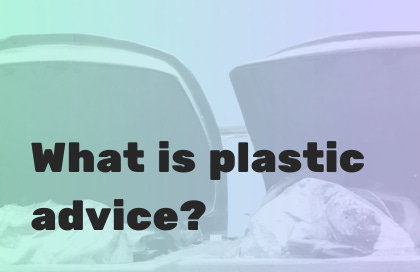We want to hear from more voices and broaden our own perspectives, so we recently asked members of the Diem community to pitch their own stories for this newsletter. Our next guest essay is by Robin Lanehurst. Robin grew up in St. Louis, MO and, after spending a decade in Texas, is currently writing from Portland, OR where she lives with her wife and toddler. They have written for outlets like Psychology Today, Counseling Today, and Rooted in Rights, and were a finalist for the 2023 Summer Fishtrap Fellowship. She is also a proud alumna of The Attic Institute's Creative Nonfiction Studio.
Want to write for us? If you want to pitch a guest essay idea for the newsletter, read this guide and email our editors at pitchus@askdiem.com.
In 2016, I left a toxic relationship and started fresh. I quickly met someone new. My new partner identified as non-binary and used they/them pronouns. They were also both Mexican and Black, identities that they claimed equally. My friends had never met anyone like my new partner—and truthfully, neither had I—but instead of acting open-minded and curious, my friend group came off as confused and slightly threatened.
Unfortunately, my friends made their discomfort known through offhand comments and refusals to invite my partner to group events. Things escalated when, after dating for nine months, my partner and I decided to get engaged.
Unsolicited advice came in wave after wave:
“You need to be independent for a while – you were just engaged and you definitely need to wait at least a year before you get engaged again.” (I had been engaged to my previous partner.)
“You need to spend more time being single and hanging out with us! We can go out and have fun as a group of single girls again!”
“What you really should do is spend some time figuring things out before getting into another relationship.”
“This is your time to be free and explore yourself!”
“Trust me, you don’t want to be financially reliant on anyone else for a while.”
“I just think you need to remember what it’s like to take care of yourself.”
“You are moving too fast – you just moved in together a few months ago. You should slow things down.”
“You don’t know each other yet and you need more time.”
“I’m just not comfortable with them yet – there’s just something about them and I think you need to be cautious.”
Although I knew my friends truly believed their advice was helpful, it felt vague and disconnected from my actual relationship. When I pushed back, trying to reassure the group that I hadn’t taken this step lightly, they dug in deeper.
I’ve developed a phrase for this phenomenon—plastic advice. Plastic advice is often uninvited but given anyways. We’ve all gotten these types of missives—they’re reusable and flimsy without a ton of substance. Plastic advice includes cliché expressions of guidance like “never go to bed angry” or “sleep when the baby sleeps,” but it doesn’t account for your specific, complex life. In my case, my friends were urging me to “stay single” and “spend some time with myself” when I was happy and in my first healthy relationship in years. Looking back, I wasn’t sure what problem they thought I needed to solve.
Plastic advice is kind of like an old takeout container you keep even though the size and shape aren’t what your particular leftover situation requires. This type of guidance is bland and innocuous, which makes it easy to dole out. Plastic advice is the worst when it comes from those close to you. Instead of encouraging you to be your most authentic self, plastic advice upholds traditional power structures—heteronormativity, patriarchy, white supremacy, capitalism, etc.
Identifying plastic advice often comes down to following your intuition. If words of solace from a friend feel off or in contrast to your lived experience, pay attention to that feeling. You should be able to ask questions and challenge your advice-giver without triggering defensiveness, especially if the advice doesn’t feel specific to your situation. To see through plastic advice, it’s helpful to do your own internal work and learn to trust your instincts.
Looking back, I think the friendships and relationships I’ve had with other women have both liberated and confined me. Plastic advice is a tool of judgment, assimilation, and control. Instead, let’s believe in, validate, and support each other—it’s worth it to try and live as plastic-free as possible.
What do you think of this phenomenon? Have you ever received plastic advice? Share your stories with us.
If you enjoy The Things We Don't Talk About and want to support what we’re creating at Diem, it would mean the world to us if you invited friends to subscribe and read with us each week. Our growth as a newsletter and community platform has been entirely via referrals from people like you and we’re excited to be able to formally reward you (and say thank you!) for recommending us with this new Refer a Friend feature.
How to participate
1. Share The Things We Don't Talk About. When you use the referral link below, or the “Share” button on any post, you'll get credit for any new subscribers. Simply send the link in a text, email, or share it on social media with friends.
2. Earn Rewards! Find more on those, here.
This Week’s Diem Commentary
👀 What does Barbie mean to you? Our editor wants to know.
👀 “I can’t come on antidepressants.” Diemers weigh in with their own insights.
👀 Do you feel insecure while dating? Things got pretty real here.
👀 It’s shitty to get laid off as a single woman in her 30s. So we talked about it.
👀 Should influencers or celebrities on Ozempic disclose this to their audience? Diemers debate.
Join Diem (“the comment section of the internet”) via web or download our iOS app!
ICYMI: We launched out of beta. Diem is now ready for all your important, funny, frenetic, and thought-provoking questions.
Download and join Diem via web or iOS today! The more conversations we have the better Diem becomes for everyone 💫




